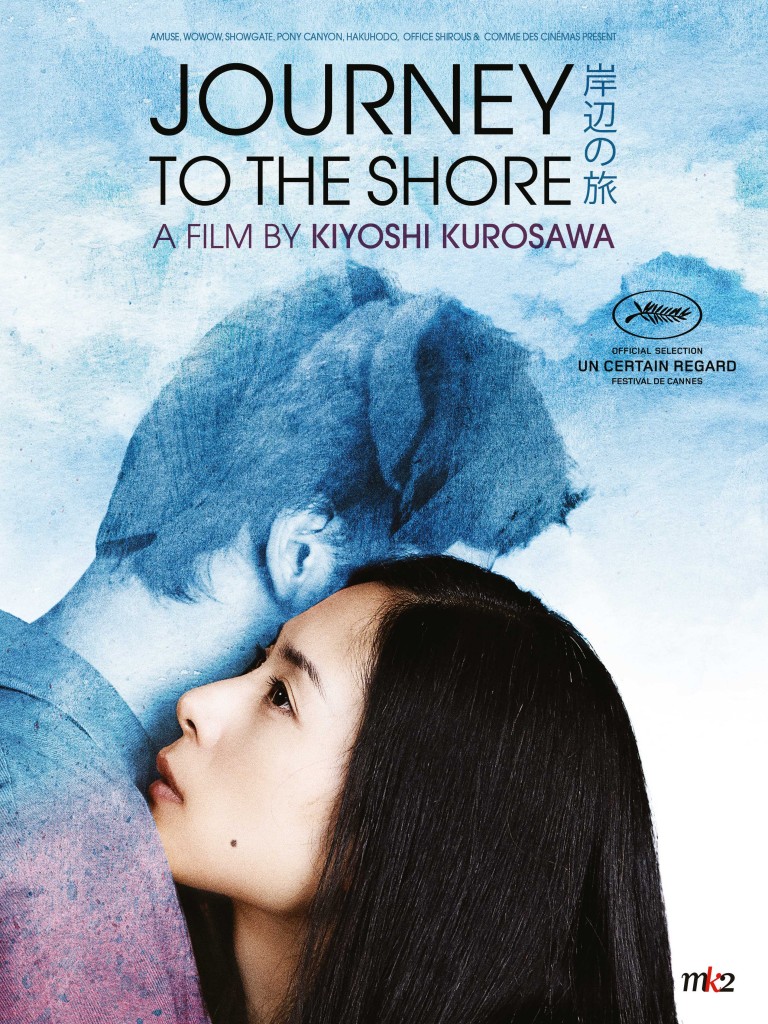NYFF: Journey to the Shore
 Friday, September 25, 2015 at 2:00PM
Friday, September 25, 2015 at 2:00PM  Manuel here kicking off TFE's New York Film Festival coverage. The festival begins today but they've pushed back the "official" opening The Walk (2015) to Saturday due to the Pope's visit.
Manuel here kicking off TFE's New York Film Festival coverage. The festival begins today but they've pushed back the "official" opening The Walk (2015) to Saturday due to the Pope's visit.
So let's start with a moody melodrama from Kiyoshi Kurosawa, better known for his successful horror and thriller pictures (Cure, Pulse, Retribution).
Journey to the Shore is a ghost story. This is an economical description of its plot and an acknowledgment of its genre. But it is also, its thematic concern. Mizuki (Eri Fukatsu) is mourning and missing her husband, Yusuke (Tadanobu Asano). He’s been gone for three years. We don’t quite know what’s happened to him and he doesn’t really explain himself when he appears out of nowhere in front of his wife at their apartment. Her prayers, which she’s been dutifully writing down pleading for his return, have perhaps worked. Yusuke then asks his wife to take a trip with him; like all ghosts (for what else could he be?) he has unfinished business to attend to. There’s at first a playfulness to Kurosawa’s setup: well-versed in ghost stories, his audience surely looks for dead giveaways (can he be touched? can others see him?) and much of those first scenes tease these questions out, even at one point offering the suggestion that Mizuki, in her grief, has dreamed this all up.
But that is not really the point. Yuzuke is not quite a ghost but he’s also not quite alive, and the film makes it clear soon enough that this should not be our concern. Instead, the emphasis is on Yusuke and Mizuki’s relationship. As they make their way to the “shore” of the title, Mizuki is offered glimpses of where her husband spent the last three years of his life. This gives the film an episodic feeling and there are some set pieces that work better than others (a stay at a newspaper delivery warehouse is eerie and soulful in the ways the entire film aims for, while a stay near a waterfall where the dead presumably travel to is much too schematic, using another couple to comment on our central pair).
I won’t spoil much else about Kurosawa’s film which is focused, in any case, more on mood than on plot. As I said, it is a ghost story and perhaps even from this all-too-brief summary, you can tell where the film is headed. Ghost stories, after all, are about our inability to move on. That Kurosawa literalizes much of this subtext is precisely the point but ultimately it’s unclear what we’re supposed to get from this stylistic move, especially when the film’s most captivating scenes exist outside of the film’s ghostly parables (a confrontation between Mizuki and one of her husband’s female colleagues is exquisite precisely because it is all subtext, every line laced with hidden implications, every look a tacit accusation).

Gorgeously shot and languidly paced, Kurosawa’s film was, I have to admit, a bit of a drag, its ideas both too blunt and too obscure, and try as it might, it never quite moved me, even though plenty of tears were shed on screen.

Journey to the Shore plays NYFF on Tuesday September 29th and Thursday October 1st.


